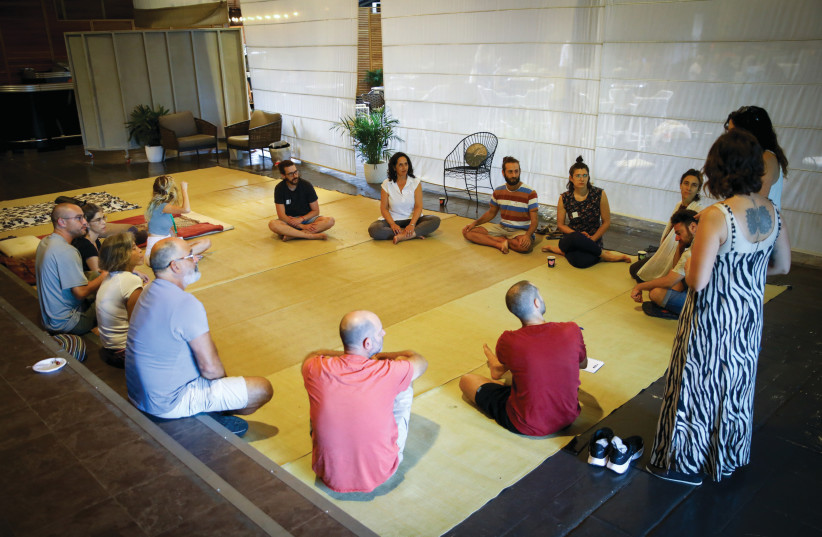The unprecedented October 7 massacre took many Israeli systems by surprise, but not all. Israel’s resilient innovation ecosystem helps it not only develop in routine times but also remain agile and responsive to transformative crises. Can this model be recreated on a global level to tackle escalating global challenges?
Rapid response
When the October 7 attack’s impact started to emerge, Israelis organized rapid solutions for immediate needs, such as housing and food for the influx of Western Negev refugees. Soon after, they focused on larger rehabilitation efforts to bolster Israel’s long-term resilience. Just a couple of weeks after the attack, there were already numerous new investment mechanisms to support Israeli startups’ runway, along with tech teams building solutions for emerging needs. These included a CRM system matching missing pets to unidentified animals that were
found; software automatically identifying terrorist supporters’ profiles to report them; and a mental health platform connecting caregivers to the traumatized public.

There was also an overwhelming number of startups supporting initiatives which led the Israel Innovation Institute, together with IDF intellligence Unit 8200 alumni, to consolidate these initiatives onto one website. This allowed companies to filter opportunities by their needs and type, to find their best fit. Over 40 Israeli initiatives were created to assist the many companies in need, while they received little support from governmental bodies. By the time the government realized the extent of the hi-tech sector’s needs, bottom-up private
initiatives were already operating and keeping the economic engine moving.
An environment for success
The swift response was facilitated by the robustness of the Israeli innovation ecosystem, characterized by its formidable stakeholders and interconnected networks. These elements enabled enhanced communication and collaboration, fostering crisis management capabilities. Diverse players operate in harmony, recognizing that the foundation of the Israeli success story lies in their interconnections and cooperation.
This resilience is highlighted in the recent “Global Innovation Index 2023: Innovation in the Face of Uncertainty” report from WIPO (World Intellectual Property Organization). Despite only 40th and 36th rankings for its institutions and infrastructure, Israel translates its innovation inputs into outputs at 14th globally. Notably, Israel excels in business sophistication, ranking 6th globally, attributed to its skilled knowledge workers, ranked 14th. But Israel’s number one achievement is its unparalleled innovation linkages, topping the global rankings. Israel’s interconnected networks and collaboration abilities have propelled its knowledge and technology outputs to 5th globally in creation, impact, and diffusion.
The agility of the Israeli innovation ecosystem in rapidly addressing unprecedented local challenges can serve as a model for tackling global issues. In times of crisis, innovation ecosystems play a crucial role in bridging gaps that governments often struggle to address quickly.
Can success be replicated?
Can we recreate the power of the Israeli ecosystem model to confront other major global challenges? Israel’s vibrant ecosystem enables collaborations among diverse players, which is key not only for routine local development but even more so for resilience in times of disruption, now increasingly frequent worldwide.
Alongside the ongoing Israel-Hamas war, another significant Middle Eastern event transpired – COP28 hosted by Dubai just before Christmas, with over 80,000 participants from nearly 200 countries. While local innovation ecosystems are vital for addressing regional challenges, global challenges require innovation ecosystems that can build impactful networks and collaborations between challenge owners, solution providers, and other stakeholders.
Imagine an African city with an innovation manager, enabling rapid implementation of a smart transportation solution from Australia, decreasing traffic and pollution. Or an online map helping British researchers understand drought challenges farmers face in different Mexican regions, connecting them to on-the-ground experiences. Or a Brazilian factory, American investor, and Israeli startup collaborating to develop solutions for the next frontier in sustainability. Just as with the unforeseen terror attack, pressing threats like climate change demand a collective and immediate response. Robust global innovation ecosystems around key challenges will make this possible, improving our lives and future.
The Israeli ecosystem has proven its ability to nimbly solve rapidly evolving crises, often before the government can respond. Does the international ecosystem have the capacity to tackle escalating global challenges head-on?
Concrete steps like establishing innovation units in municipalities and developing global collaboration hubs around specific challenges could help spread the Israeli model worldwide.
The writer is catalyst director at the Israel Innovation Institute.
